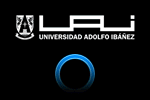British Food Journal, 123(3), 869-883
Purpose
The purpose is to evaluate the effect of positive and negative traditional word-of-mouth (PWOM and NWOM) on price-based quality perceptions of middle-range wine (price comprised between US$4 and US$12), considering the moderator role of type of relationship between source and receiver –in terms of the strength-of-tie – and the wine expertise of the source.
Design/methodology/approach
A between-subjects experimental design was employed to test the hypotheses. The dependent variable, perceived quality, was analysed using analysis of variance (ANOVA) and independent samples t-tests.
Findings
(1) WOM significantly affects price-based wine quality perceptions only when the source is perceived as expert, and independently on the type of relationship between source and receiver. (2) WOM has no “additive effect” on price-based quality perceptions for all but one condition (PWOM about high-priced wine from a close and expert source). (3) WOM results more useful than price to assess quality mainly in “contradictory” situations.
Research limitations/implications
The main limitation is related to the fact that is an experiment, specifically the manipulation of strength-of-tie and source expertise. Although manipulation checks show good results for the procedure, future research should try to design better ways to manipulate these variables, or different procedures to capture similar data.
Practical implications
Managerial efforts aimed to the encouragement of PWOM will be more efficient in markets with a high proportion of experts. Also, the marketing strategy of stimulating PWOM would be more effective for wines in the low-price category.
Originality/value
This study contributes to understand the impact of WOM on wine quality perceptions by examining if WOM affects priors price-based quality perceptions. In particular, we determine if price-based quality perceptions are able to be modified by PWOM and NWOM, a “competing” approach that is novel within the wine literature in which price is usually the most used cue to elaborate quality perceptions.
Ver publicación





